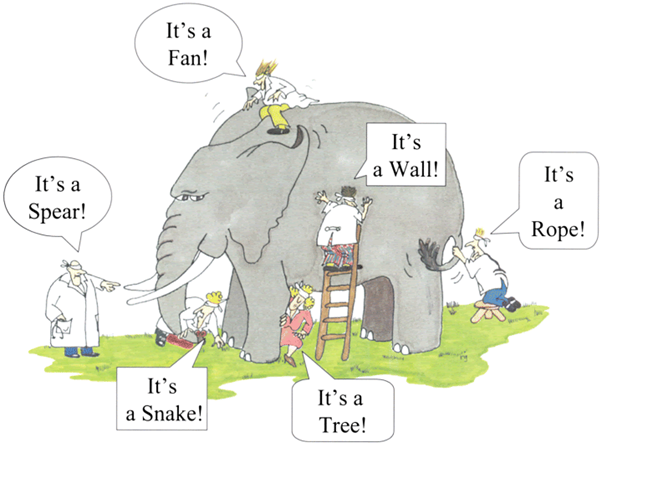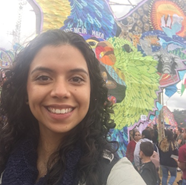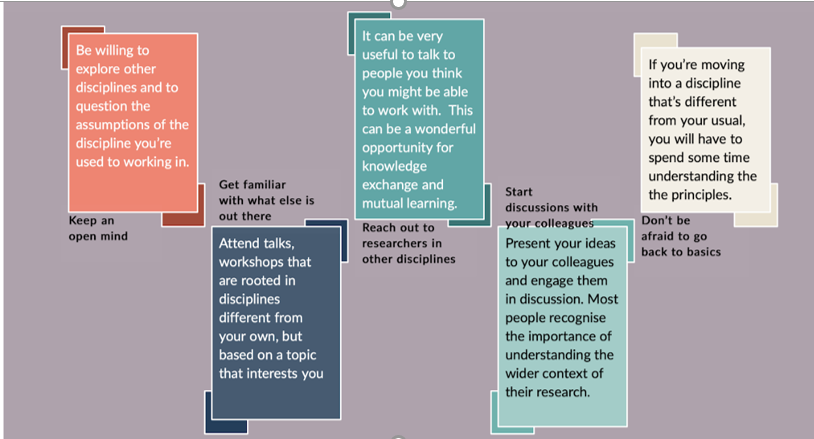
Cross-disciplinary research – an umbrella term for all types of collaborative research that involve two or more academic disciplines – has become increasingly popular in recent decades. This approach to research is useful for addressing complex social problems, combining disciplinary breadth with the ability to collaborate and synthesize varying expertise (Mutz et al., 2015). It also opens up new areas of research and encourages researchers to address questions outside the scope of traditional research disciplines. However, there are challenges to cross-disciplinary research, and collaboration can be impeded by divergent standards, different approaches or by negative attitudes and preconceptions (Aagaard‐Hansen, 2007).
In this blog, we reflect on our experiences of engaging in cross-disciplinary research. We all come from a background rooted in biological and quantitative science, but recently had an opportunity to take part in qualitative or participatory research projects. We discuss some themes that came out strongly from this experience and make some recommendations of how early career researchers can begin to explore cross-disciplinary approaches to their work.
Understanding power
Coming from a quantitative research background, no one ever really talked about things like “power” and how it manifests in research – you get the message that the science itself is important, not the context in which the science was or is conducted. And while its evident that hard data and metrics are essential for progress in health, involvement in a participatory health research project showed me (Beatrice) that decisions regarding which health issues are addressed in research, who they are addressed by and how the findings are implemented, are deeply influenced by power dynamics; it’s important to acknowledge and strive to address these unequal power dynamics no matter what academic background you come from. The fields of tropical medicine and global health are particularly laden with historical power imbalances, linked to the legacies of colonialism, which still permeate research relationships between the global North and the global South (Khan et al., 2021). This makes it all the more important to adopt participatory approaches where possible, which prioritise the involvement of individuals whose lives or work are affected by the focus of the study in all stages of the research process.



Breaking away from numbers
At first it was a challenge to break away from numbers, because their importance is deeply rooted in the way we were taught to think about research. However, focusing on the number of people within your research can often create a disconnect between you and the person in your study. Embracing a new discipline helped me (Carrie) value the importance of every voice or opinion I heard whilst I collected data during my interviews. For me (Carrie), the most important thing I learnt during this process is to think about the person or people involved in the research you’re doing every step of the way.
Exploring contexts/health systems and communities
Whichever discipline we come from, we can all agree that real life contexts, health systems and communities are complex with multiple interactions at interplay with one another. As a quantitative researcher you are taught to tease apart these complex interactions to simplify and understand the world we live in. This is different to qualitative research which embraces the complexities and makes sense of them by looking at the whole picture – this is an extremely refreshing experience! But also, a little scary when doing this for the first time, when trying to make sense of all this vast and rich data you have in front of you. Solutions to guide future work or seek improvement in health systems or communities are not simple and require the involvement of a variety of people in that system to identify the gaps or areas for improvement that are unique to each context. This makes qualitative research a necessity for exploring certain research topics in global health. Reflecting on my qualitative research process, I (Carrie) was surprised about how time consuming this approach was – however, the ability to draw conclusions which had not originally been considered by the researcher was a major strength, and an aspect that other research approaches don’t offer.
Working together with communities rather than extracting information
All of us have had the opportunity to work in the field in different countries. As a local from a developing country, I (Yaimie) have worked in remote communities in my country where certain diseases are endemic. Once, I (Yaimie) was part of a team that was collecting data from domestic dogs and the diseases they carried. The local people wanted to help us as we had told them that we were studying a disease that could affect their dogs, as they used them for hunting and work. However, when the collection period ended, we left the community and we never went back to tell them what we found or the implications of our work. This happens a lot, the extraction of information from communities is sadly very common in research.
Fast forward 5 years, I (Yaimie) was working in a participatory action research project which aimed to strengthen the health system. We were working alongside key stakeholders from the health system, from community leaders to government personnel. Everybody brought something valuable to the table and the stakeholders decided the direction and even the pace of the research – we were just providing guidance and putting together the data collected so that the stakeholders could analyse it. It was a new and beautiful experience. We helped to craft the research questions, but the stakeholders answered them and co-analysed the data. People brought their own experiences to the table and this helped to guide their research. It was a learning process for all of us, as the stakeholders were learning how to do research and for me, I (Yaimie) was learning to listen and to value the knowledge that people have. I (Yaimie) was tearing down the idea that science is done just by academics in a vertical form and starting to think more horizontally, where knowledge exchange is key, and everyone brings something valuable to the research.
How to start exploring cross-disciplinary research?
The gap between disciplines can seem unbridgeable, particularly if you’ve been rooted in a traditional discipline for a long time. Here are a few suggestions of how you can start exploring potential avenues for cross-disciplinary working in your research.

AAGAARD‐HANSEN, J. 2007. The Challenges of Cross‐disciplinary Research. Social Epistemology, 21, 425-438.
KHAN, M., ABIMBOLA, S., ALOUDAT, T., CAPOBIANCO, E., HAWKES, S. & RAHMAN-SHEPHERD, A. 2021. Decolonising global health in 2021: a roadmap to move from rhetoric to reform. BMJ Global Health, 6, e005604.
MUTZ, R., BORNMANN, L. & DANIEL, H.-D. 2015. Cross-disciplinary research: What configurations of fields of science are found in grant proposals today? Research Evaluation, 24, 30-36.